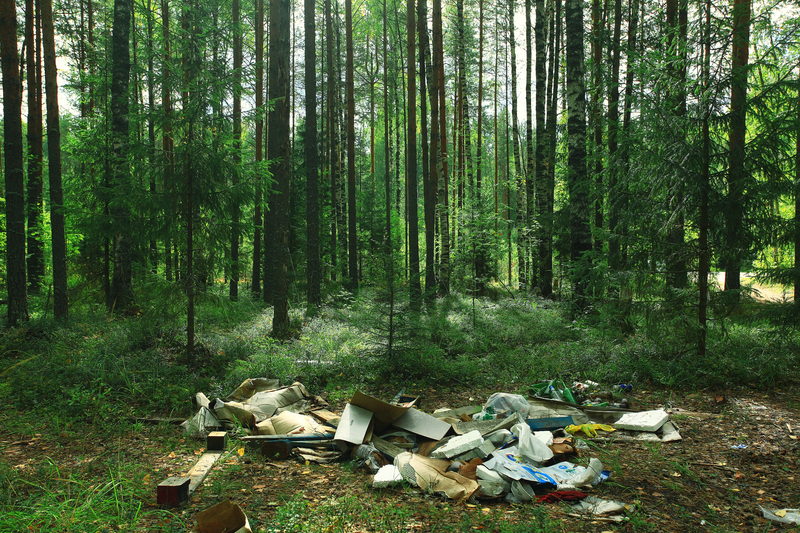How to Remove Bulky Waste Items on a Tight Budget
If you've ever tried to get rid of an old sofa, broken appliances, or outdated furniture, you know that disposing of bulky waste items isn't always easy or cheap. Waste collection services often charge high fees, and inadvertently dumping large unwanted items can result in hefty fines. However, removing large items doesn't have to break the bank. In this comprehensive, SEO-optimized guide, you'll discover practical, budget-friendly strategies for removing unwanted, oversized junk without draining your wallet.
Understanding Bulky Waste and Why Proper Disposal Matters
Before exploring affordable options, it's crucial to understand what qualifies as bulky waste items and the implications of improper disposal.
- Bulky waste refers to large household items that cannot fit into regular trash bins--think sofas, mattresses, large electronics (white goods), exercise equipment, and more.
- Improper dumping can harm the environment, attract pests, and may lead to steep local authority fines.
- Some items, like refrigerators or electronics, may contain hazardous materials requiring special handling.
Disposing of large items responsibly not only keeps your community clean but also contributes to a healthier environment. So, how can you get rid of these items without overspending?

Smart Planning: Audit Your Bulky Waste
Start with a waste audit to determine exactly what you need to remove. This step is essential to avoid unnecessary removal costs and ensures nothing gets left behind.
- Create a list of all bulky junk items in your home--include furniture, appliances, and any other oversized articles.
- Assess the condition of each item: Can anything be sold, donated, or repaired?
- Group items by material (metal, wood, electronics, textiles) to help you choose the cheapest removal method for each category.
Tip: Take Photos
Providing photos to potential collectors or posting online can help streamline the bulky rubbish removal process and might even help you find free takers!
Low-Cost and Free Methods for Bulky Item Disposal
Here are some tried-and-tested ways to remove large waste items on a budget. Many of these methods are either entirely free or far cheaper than hiring commercial clearance firms.
1. Check Your Local Council's Bulky Item Collection Service
Many municipal governments offer low-cost or free collection days for bulky household waste. These services often come with restrictions--such as the number of items or type of waste--but they can help you save significantly.
- Visit your local council's website and search for "bulky waste collection service."
- Schedule a pickup, if available, and find out if you need to place items on the curb or at a designated spot.
- Be aware of collection schedules--slots can book up fast, so reserve in advance.
- Some councils offer free annual pickups or charge a nominal fee.
2. Donate Usable Items to Charity or Non-Profit Organizations
Why pay to remove what someone else might treasure? Charity shops and non-profits will often collect good quality furniture and working appliances for free, making this one of the most cost-effective options.
- Contact local charities and ask about their collection policies (e.g., British Heart Foundation, Salvation Army, Habitat for Humanity).
- Many organizations offer free pick-up for large and in-demand items.
- Ensure items comply with safety standards (mattresses and sofas often require fire labels).
Not only is this option budget-friendly, but it also helps those in need and benefits the environment by reducing landfill waste.
3. Use Online Marketplaces and "Freecycling" Platforms
The saying "One person's trash is another's treasure" couldn't be more apt. Freecycling is an online movement that connects people giving away items with those seeking them--absolutely free.
- List your bulky waste items on platforms like Freecycle, Facebook Marketplace, Gumtree, or Nextdoor.
- Specify that the item is "collection only"--most people are happy to collect large items themselves.
- For broken or non-working items, be honest about the condition--there are often DIY enthusiasts looking for projects or spare parts.
- You may even earn a bit of cash by selling items in good condition!
4. Take Advantage of Manufacturer or Retailer Take-Back Schemes
Some companies will collect old bulky appliances or furniture when delivering new items, sometimes free or for a small charge.
- When purchasing a new fridge, washing machine, bed, or sofa, ask the retailer about their take-back program.
- Check if your purchase qualifies for free removal of your old item.
- Compare fees to other disposal options to find the best value.
5. Drop-Off at a Local Recycling or Household Waste Site
Most councils offer free or inexpensive disposal at local Household Waste Recycling Centres (HWRCs). This is particularly cost-effective if you have access to a vehicle or can borrow one.
- Find the nearest HWRC--search online for locations and operating hours.
- Check which types of large waste are accepted (some centers won't take certain items).
- Plan your trip to drop off several items at once, if possible.
- Bring a friend to help with heavy lifting if required.
6. Split Costs with Neighbors or Friends
Are your neighbors also looking to get rid of unwanted bulky waste? Share a skip or split the cost of a clearance service to save money.
- Coordinate with neighbors for shared collection services--you might fill a skip together or negotiate a better price with a local waste hauler.
- Some areas offer "community clean-up days" where residents get discounted disposal rates.
7. DIY Dismantling and Repurposing
If you're handy with tools, break bulky items down into smaller, manageable parts that fit standard bins (where local rules allow), or turn old furniture into DIY projects.
- Disassemble large items--remove legs from sofas, break down wooden frames, and separate materials.
- Reuse materials for crafts, repairs, or garden projects--old pallets, cushions, and wood can have a second life.
- Dispose of non-reusable parts responsibly following local council regulations.
Additional Tips for Saving Money on Bulky Rubbish Removal
- Compare local providers: Get quotes from small, independent waste clearance businesses-- they often offer better rates than the big chains.
- Look for discounts: Some companies provide special deals for seniors, students, or low-income households--ask before booking.
- Avoid fly-tipping "cowboys": Always use a licensed waste carrier and get a written receipt. Illegal dumping is costly, both financially and environmentally.
- Time your removals: Some services offer cheaper weekday rates or lower prices during off-peak months.
What Not to Do: Common Pitfalls in Bulky Waste Disposal
To stay on budget and out of trouble, steer clear of these costly mistakes:
- Don't leave items on the curb without permission--this could result in fines.
- Never pay large upfront fees for removals you haven't vetted.
- Avoid illegal or uninsured haulers. If your items are dumped illegally, you could be held liable.
- Don't ignore recycling or donation opportunities--landfill space is limited and disposal fees can add up.

Frequently Asked Questions about Cheap Bulky Waste Disposal
How can I get rid of bulky rubbish for free?
Check with your local council for free collection days, use Freecycle or similar platforms, or donate items to charities that offer free pick-up for reusable goods.
Is it cheaper to hire a skip or use a man-and-van rubbish removal service?
If you have only a few items, a licensed man-and-van service is usually cheaper. Skips are cost-effective when sharing with neighbors or disposing of a high volume of waste.
Can I leave my old sofa or mattress by the roadside?
No. Leaving large waste items in public spaces is considered fly-tipping and risks a hefty fine. Always use approved collection services.
What happens if my bulky items are recycled or donated?
Recycling ensures materials are processed and reused, helping the planet. Donations extend the life of goods and support communities.
Conclusion: Budget-Friendly Strategies for Bulky Item Removal
Disposing of bulky waste on a tight budget is entirely possible with a little planning and research. Whether you're giving items away, accessing community resources, utilizing local council services, or tackling a DIY project, you can clear space in your home without overspending.
- Start by auditing what needs to go and exploring free or low-cost removal options.
- Be resourceful--network with neighbors, charities, or online communities.
- Always dispose of items responsibly to avoid unexpected costs and support your local environment.
By following these budget-friendly strategies, you can tackle even the largest piles of bulky household junk efficiently and affordably. Don't let oversized waste stand in your way--get started on your clutter-free journey today!
```